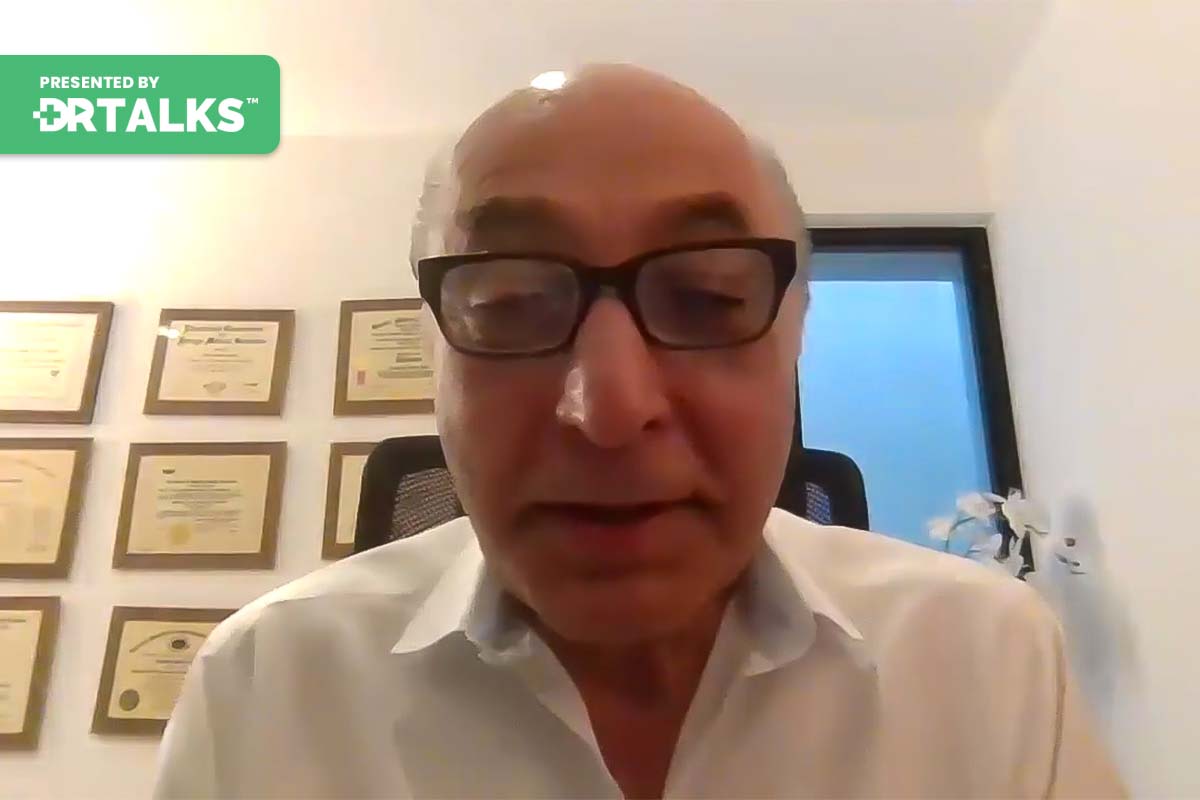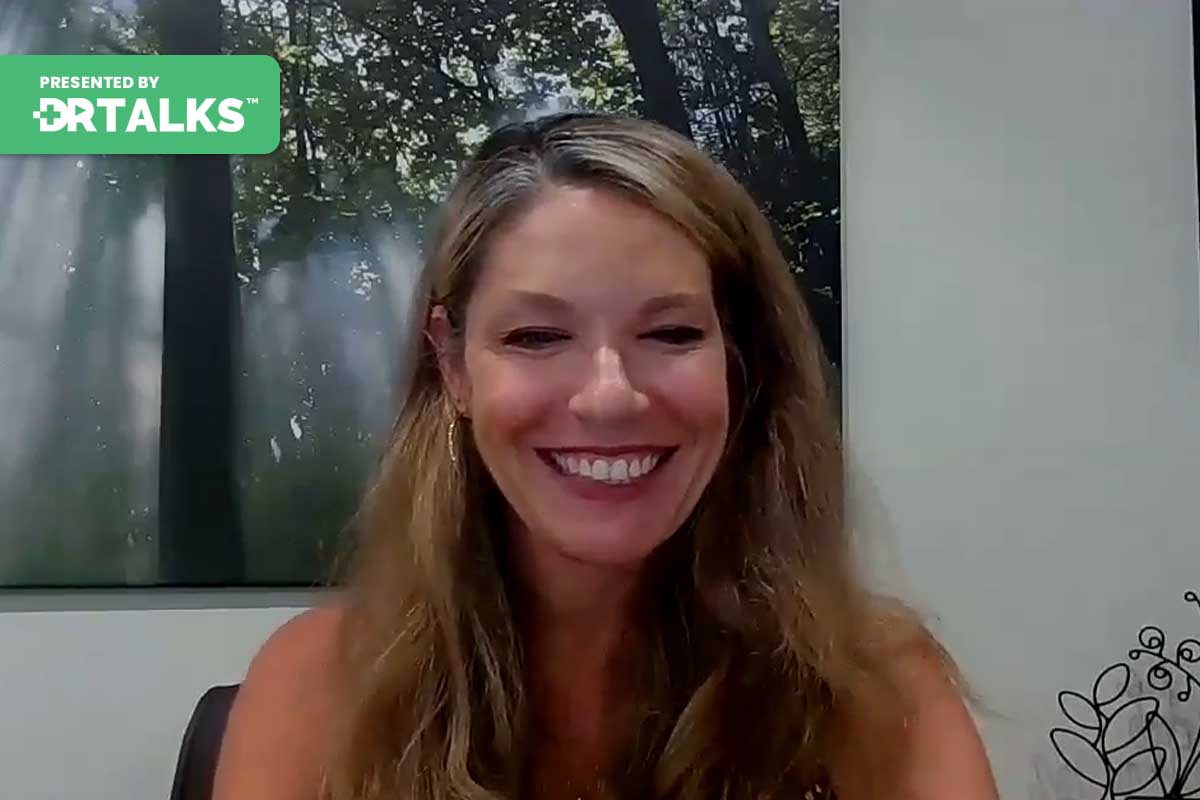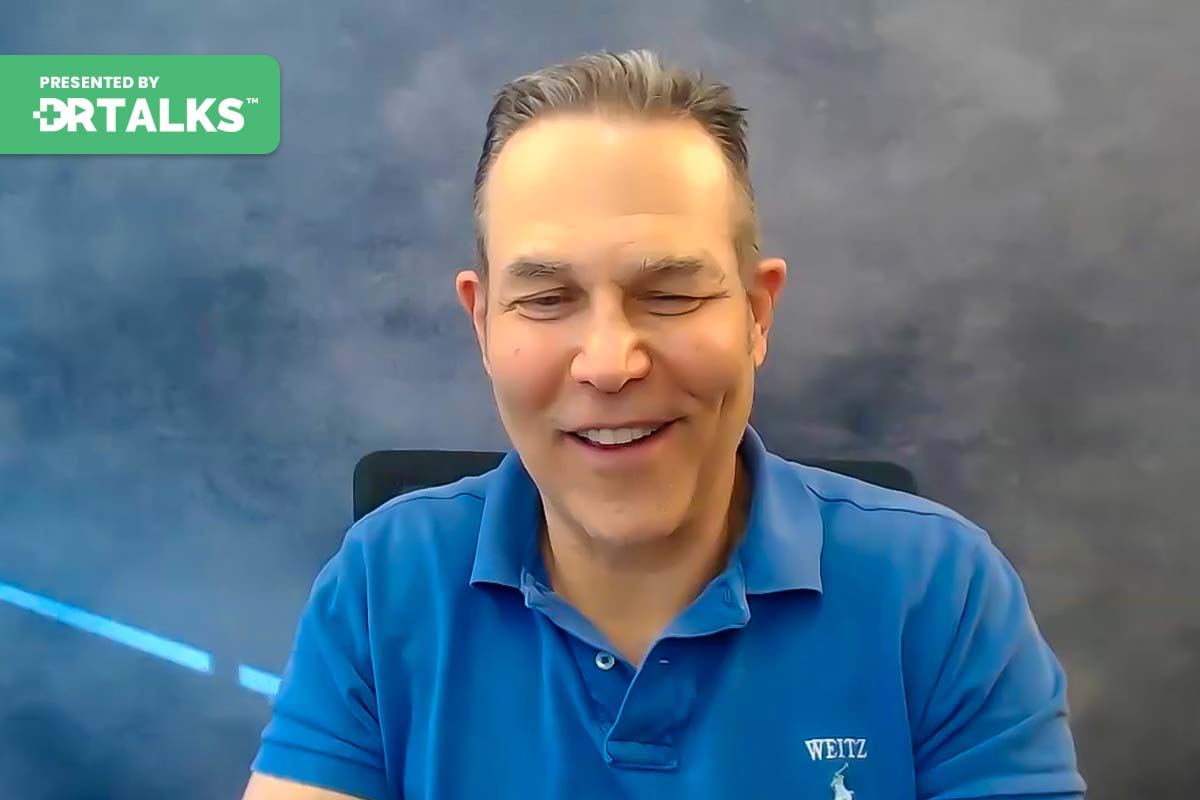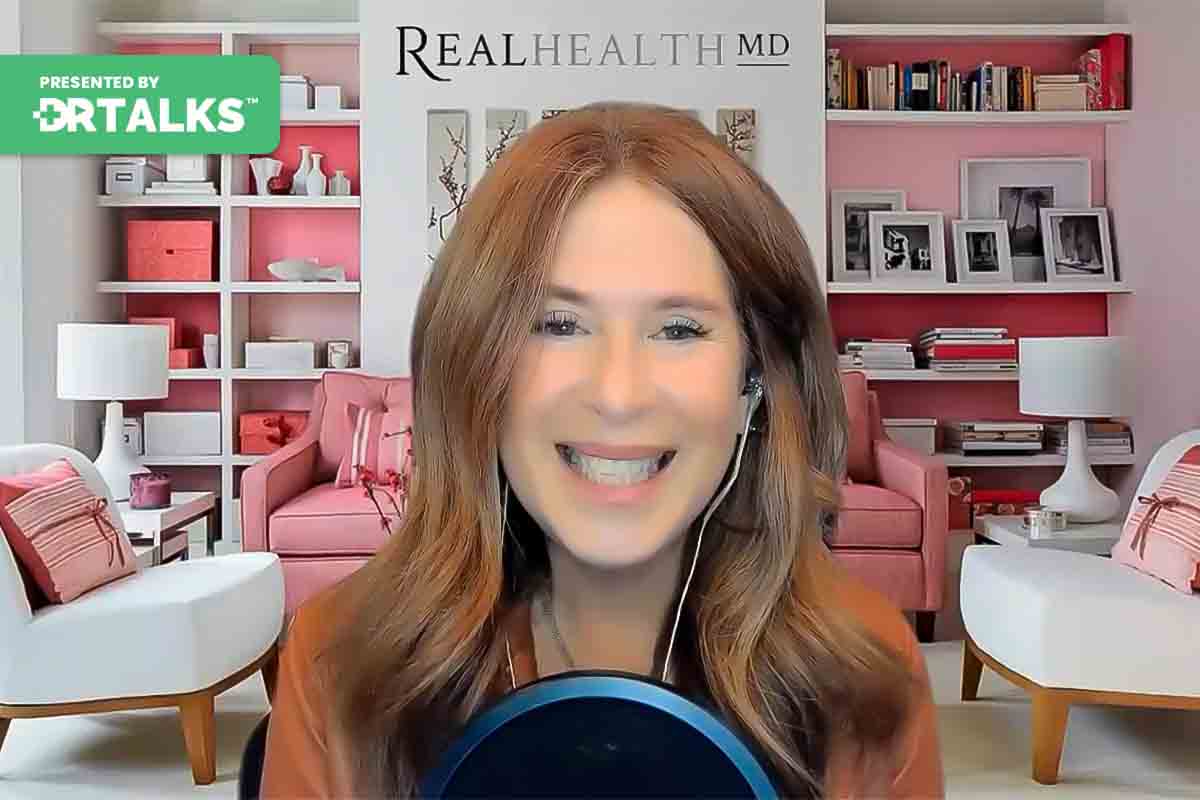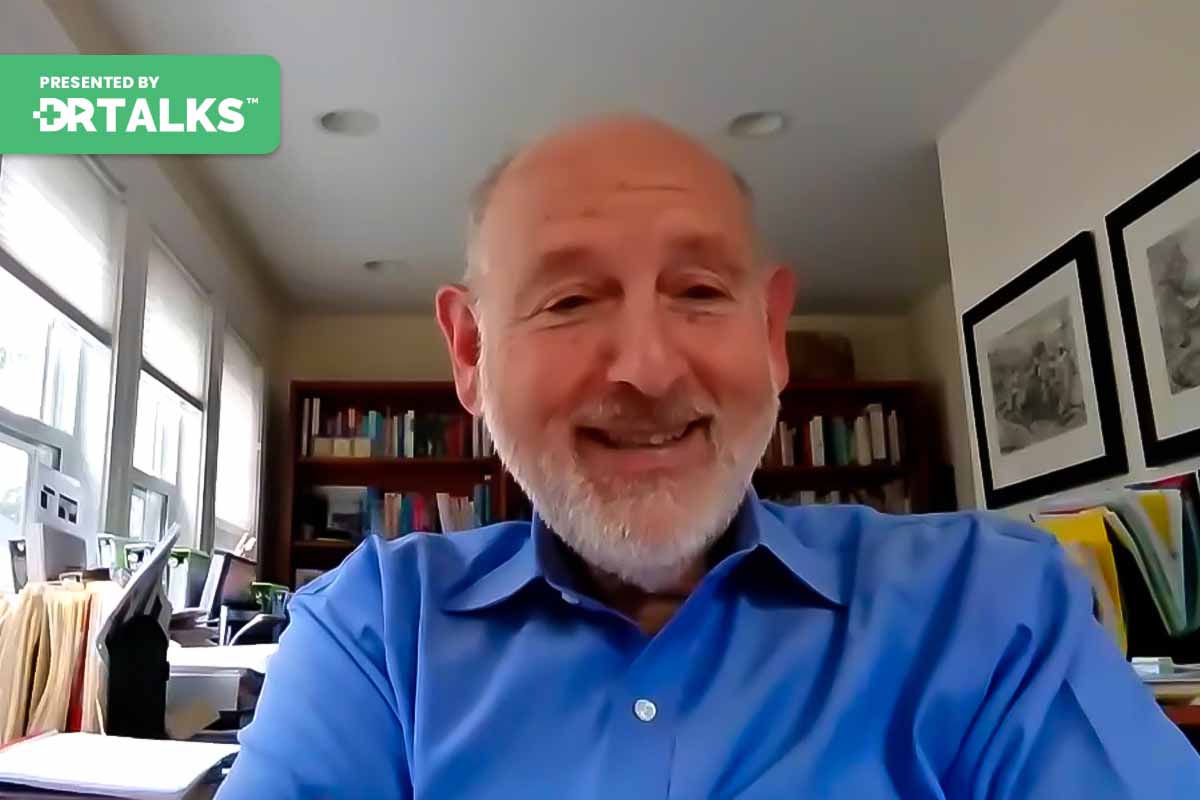Every one of you with PCOS will end up with the tools to actually change, and transform your lives. It’s not just knowledge. It’s knowledge to enables action because results are where it all is. I think knowing stuff is nice, but doing stuff is better. So I want to give you a knowledge base and then actionable skills to take away so that you can really change your destiny. Remember, you have increased risk as a woman with PCOS for a lot of things, but risk is not the same as destiny. I always say you can transform your destiny. I call it defined destiny. You define how you live your life and that creates your destiny. Knowing risk is really important because it can determine the course of action you take, but knowing risk does not define who you are or what will happen. So I want you to understand your risks, and what’s happening in your body, and then I want to give you clear-cut directions on how to get to your desired destination, which is a state of happiness and optimal health. Now, I like to impart a little bit of extra knowledge in each one of these little presentations. And for this one, I would like to talk to you a little bit about insulin resistance.
It turns out that almost all, not 100%, but the vast majority. Remember, first of all, PCOS is not a condition. It is a syndrome. It’s a syndrome that is characterized by certain symptoms and findings. It has different degrees. It’s a spectrum. There can even be different types which will you’ll be talking about, but understand that insulin resistance is highly prevalent. So what does that mean to have insulin resistance? It means insulin, which is a hormone that has receptors. And what’s happening is the receptors aren’t receiving properly. So the insulin is like will say sub functional, it’s not worthless, it’s not doing nothing, but it takes more insulin to accomplish the goal. Now what insulin does many things in the body, but the goal that I’m talking about with insulin resistance is enabling glucose in the blood to cross cell membranes to enter cells so that the cell can then use the glucose as an energy source. Because energy is what drives the cells’ ability to function to create proteins or rejuvenate and create new cellular structures and so on. So you cannot have a healthy cell if it doesn’t have the ability to have a good supply of energy. And if you cannot transport glucose, which is the preferred energy source of all cells in the body, it’s they can use that. But the preferred energy source is, in fact, glucose. And if you can’t get that glucose into the cells, you end up with high blood sugar and low energy production in the cells. That’s like a double whammy because high blood sugar causes damage to things such as nerves. It creates inflammation. So we do not want to have high blood sugar.
And when you have high blood sugar, the body will store that sugar. That glucose in the form of fat glucose can turn into fat. And the fat gets stored in unhealthy places like in your liver, in your heart, in your bone marrow, in your pancreas, and you have fatty all these things that are very unhealthy. We don’t want to have fat just dumped everywhere. We want to have energy in our cells, and women with PCOS have impaired signaling with their insulin on the receptors. So we need to take every step possible to improve insulin sensitivity. So this is not a little thing. This affects every aspect of health. High insulin, which ends up happening because this is what happens if the insulin you have cannot activate properly the insulin receptors, then the body perceives that there’s too much glucose circulating, and so it tells the pancreas, which has the beta cells that make insulin, to make more insulin. So initially, at any rate, the pancreas can do that, and it makes more insulin. So you have higher levels of insulin. And very early on, the insulin, when you have more of it, will be successful in getting the glucose into the cells. So blood sugar is not the first sign. Elevated blood sugar is not the first sign of insulin resistance.
It’s elevated insulin levels, which many doctors are not monitoring. So I’m going to talk to you about what tests, lab tests you can do to actually assess this information. Like, do you have insulin resistance, and to what degree? Because that is very important. Okay. So just measuring a glucose level or a hemoglobin A1c is not going to tell you if you have early-stage insulin resistance. And we always, in functional integrative medicine, want to be proactive, to know the early stages of problems so that we can intervene and reverse them. That’s the goal. We don’t want to wait until you have late-stage disease, like late-stage diabetes. We can still do a lot then, but the goal is to initiate change early on when no damage has yet been done whatsoever because high levels of glucose are damaging and high levels of insulin are damaging. When you have high amounts of insulin, insulin does other things besides help transport glucose from the blood into the cells. It also promotes and enables the storage of fat. So if you have insulin resistance, not only do you end up with high levels of blood glucose, but low levels of cellular glucose in the cells that need it to create energy. You also have more fat and resistant fat to burning it. So because insulin promotes the production and storage of fat, you cannot have high levels of insulin and burn fat. It’s like two different things. And you do one or the other. You can’t be creating fat and burning fat at the same time. It doesn’t work that way.
So if you have high insulin, you will always be creating and storing fat. So what I am going to share in this module is ways that you can actually lower levels of insulin and glucose, and improve insulin sensitivity naturally. Okay. Now there are pharmaceuticals that I’m also going to talk about in this module, things like metformin, things like GLP-1 agonists, like Wegovy, and Ozempic. So I’m going to cover the pharmaceuticals as well. I really am an M.D., so I know all about this and I can prescribe as well. In this module, I am going to cover a vast array of information regarding insulin sensitivity and how you can really promote insulin sensitivity and not have a problem with developing diabetes and prediabetes. This is reversible. Okay, completely reversible.
Now, here is one very important, helpful hint that you need to know for today. There are chemicals out there in the world that are called diabesogen. These are chemicals that actually interfere with insulin signaling. And these are actually underlying a lot of problems in women with PCOS. And there are a multitude of chemicals in our society that are diabesogen. And the one I just want to touch on right now for this little presentation is bisphenol A, also known as BPA. It is found in all of the hard plastics that you use and see and in your life, hard plastic containers of all sorts. It is also in the canned liners of almost all companies. It is also on cash register receipts. It can be in some dental sealants as well. And it used to be until not that many years ago, it was actually in baby bottles. But here’s the thing. If you see plastic and it says BPA-free, it may be BPS or BPA-full. Okay. Because what the companies have done who make plastic products is they’ve made some molecular modifications.
And instead of it being BPA, it’s BP something else. But they’re equally or sometimes more toxic. So here’s a more important message. There is no safe plastic. It just isn’t there is no plastic that is safe or healthful. So the takeaway message for this particular presentation is, please avoid plastic in every way you can. I’m talking about BPA. There are also phthalates there. The soft plastics. There are things like in containers that are soft or like plastic bags, saran wrap, that kind of, you know, plastic wrap. Also vinyl is all phthalates and scents. Fragrance is phthalates is not weird. So if it says fragrance, it’s actually phthalates. So I have a whole bunch of information about chemicals, but I just want you to know there is no safe plastic and there’s a lot of data about BPA as a diabesogen that it actually when it gets into your body, dysregulated metabolism to such a significant gray that it promotes diabetes and obesity. So do what I do. Get stainless steel and glass for storage containers for your food. If it has a plastic lid, do not put that lid on until the food is cool because the heat can cause it to leach into the food. If you do take out containers for food if possible, and many restaurants will let you do this, bring your own containers. But if you can’t as soon as possible, take it out of the takeout containers and put it in your own glass or stainless products. You know your containers at home. Get it out of the container that the restaurant gave it to you or the supermarket that had takeout food. There are some better products out on the market made out of different paper products rather than made out of plastic or other kinds of toxic chemicals. But there’s no way to know for sure what’s in the product that’s in the takeout container. So get your food out of it as fast as possible, especially hot food because the heat will leach the chemicals into the food. So the takeaway is there’s no safe plastic. BPA is really toxic. And if it says BPA-free, but it’s still plastic, it’s still toxic. So that is my important message to you for this little we’ll call it PCOS moment. Okay. So I really hope that you will want and purchase my course because I am putting a lot of love and care and attention into creating a course that will truly cover the essentials of PCOS and how to approach it from a patient point of view. To take charge of your own destiny and create the beautiful, healthy life you deserve.




